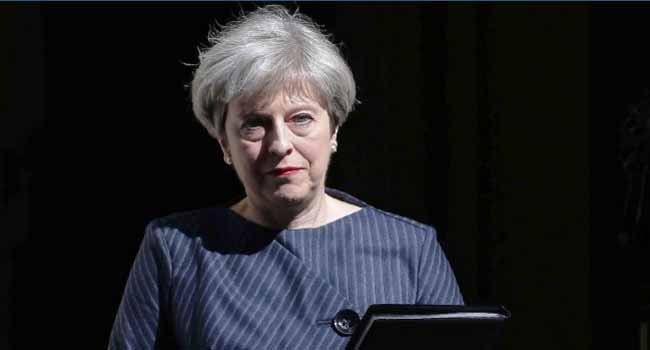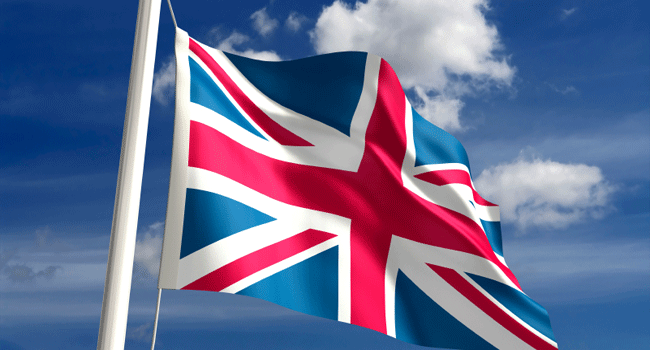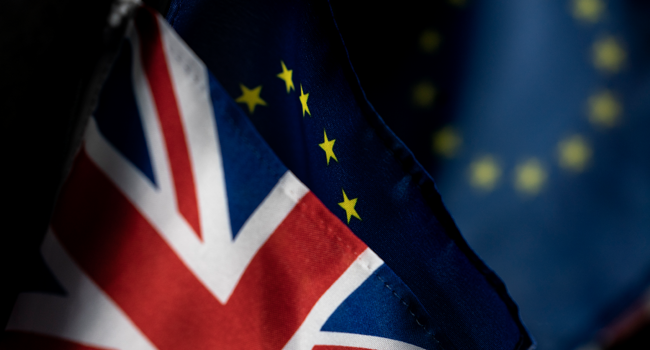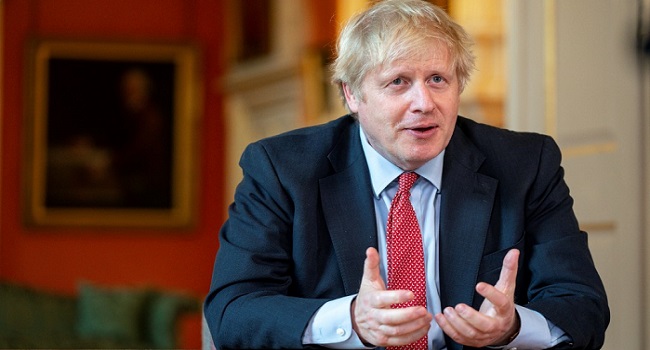
British Prime Minister Theresa May scrambled Tuesday to salvage a deal over the post-Brexit border in Ireland after it was rejected by her DUP allies, exposing the weakness of her position as an EU deadline looms.
May was due to speak by phone with Arlene Foster, the leader of Northern Ireland’s small Democratic Unionist Party (DUP), which keeps her Conservative minority government in office, after it blocked agreement on a major issue holding up Brexit talks.
London had reportedly agreed that British-controlled Northern Ireland would maintain “regulatory alignment” with EU-member Ireland after Brexit, even as Britain as a whole withdraws from the bloc’s single market and customs union.
Dublin had demanded guarantees that Brexit would not lead to the return of frontier checks which could incite sectarian tensions in a region once plagued by violence.
But as May sought to close the deal over lunch with European Commission chief Jean-Claude Juncker in Brussels on Monday, the DUP made clear its opposition.
DUP lawmaker Nigel Dodds said Tuesday his party had only seen the draft text on Monday morning and found it “clearly unacceptable”.
“We will not allow any settlement to be agreed that causes the divergence politically or economically of Northern Ireland from the rest of the United Kingdom,” he said.
– Left behind? –
Several Conservative MPs have also expressed alarm, with one leading Brexit supporter, Jacob Reese-Mogg, warning “the government doesn’t have a majority” to effectively move the EU customs border into the Irish Sea.
The leader of the Scottish Conservative party, Ruth Davidson, said it would be preferable to have regulatory alignment with the EU for the whole country.
Called to make a statement in the House of Commons, Brexit minister David Davis rejected suggestions Northern Ireland might be “left behind” in the EU single market, reaffirming his commitment to Britain’s “territorial integrity”.
Without giving more details, he said “we are now close” to an agreement in time for a summit next week, when EU leaders will decide whether to move the negotiations onto trade.
May is due to return to Brussels later this week, with both sides saying they hoped to strike a deal by the weekend.
The frenzied diplomacy caused the pound, which had rallied on Monday on hopes of a deal, to fall on the currency markets against the euro and the dollar.
– ‘What a shambles’ –
May’s domestic critics quickly seized on her failure to agree a deal.
“We have a prime minister who is so weak that the DUP has a veto over any proposal she makes,” Keir Starmer, Brexit spokesman for the opposition Labour party, told MPs.
Dodds denied this, saying it was the Irish government who wielded a veto with Brussels and accusing Dublin of acting in a “reckless and dangerous way”.
“What a shambles. What a complete mess,” said Scottish National Party MP Peter Grant.
The deal reportedly became unstuck over wording in the text agreed with Ireland, with the initial draft promising there would be “no regulatory divergence” across the Irish border, although this was later changed to “regulatory alignment”.
Davis confirmed his opposition to the first phrase, but explained that regulatory alignment meant “ensuring similar outcomes” but through different means — which did not necessarily mean adopting EU rules.
– DUP ‘could withdraw support’ –
Ireland’s ambassador to London, Adrian O’Neill, said the problem would be resolved if Britain stayed in the customs union — something officials reject, as it would prohibit them from signing external trade deals.
He said there was still scope to reach a deal, but “if it goes beyond this weekend, we may run out of time”.
The EU has said there must be progress on three key issues before moving on to trade talks later this month.
Although the question of Britain’s financial settlement is largely agreed, differences remain on the role of the European Court of Justice in securing the rights of EU citizens in post-Brexit Britain.
But failure to reach a deal on Ireland could hold up the entire process — leaving less time for Britain to secure a trade agreement before it leaves the EU in March 2019.
May needs the DUP’s 10 MPs to pass legislation through the House of Commons after her Conservatives lost their majority in a June snap election.
“There are still risks the DUP withdraws its support and the Conservatives cannot take the chance,” said Jonathan Tonge, an expert in Irish politics at the University of Liverpool.
AFP



